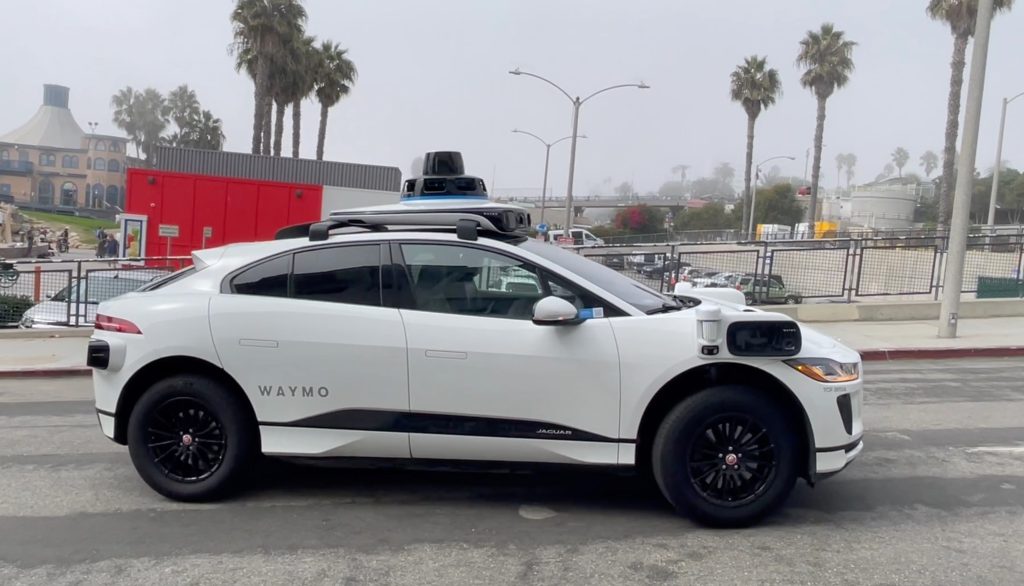While some self-driving tech companies are dialing back their development or scrapping certain vehicles altogether, Waymo is pushing forward thanks to the financial support of parent company Alphabet Inc. (Google), which just committed to a fresh investment totaling five billion dollars.
Self-driving cars, currently operating in today’s automotive landscape at varying levels of genuine autonomy, remain a polarizing form of technology for a multitude of reasons. The most often discussed is whether society can truly reach full autonomy to the point where humans can safely travel without having to operate their vehicles at all.
OEMs like Tesla have been overpromising and underdelivering on this prospect for years. In contrast, others have adopted a less radical approach to driver assistance, settling for Level 2+ or even Level 3 autonomous driving, leaving the tall task of delivering Level 4 and, perhaps, one day, Level 5 to other tech companies.
One segment in electric mobility that has made the most headway in bonafide self-driving vehicles is the robotaxi. It is led by startups empowered by massive investments from legacy automakers like GM and big tech, who see the potential in rideshares without human error.
Companies like Motional, Cruise, Waymo, and Zoox have all made commendable progress in the segment but have each faced their fair share of adversity, whether it’s incidents with pedestrians, dwindling funding, or simply a public outpour of disdain and opposition from locals.
Earlier this week, GM’s robotaxi arm Cruise announced it was halting development of its long-promised Origin EV. On the flip side, Cruise competitor Waymo is doubling down and can push forward with the help of a fresh investment from Google umbrella company Alphabet Inc.

Google shows confidence in Waymo to the tune of $5B
Per recent media reports, Alphabet Inc., the parent company of Google and its robotaxi arm Waymo, has committed to an investment of $5 billion that will be distributed over several years. The investment follows news earlier this month that Waymo was planning extensive expansions to its robotaxi service network.
Those expansions include a wider service map in the San Francisco Bay Area, the Los Angeles Metropolitan Area, where it began autonomous rides in early 2024, and Austin, Texas, where it intends to start transporting the public later this year.
In a recent quarterly earnings call, Alphabet’s CFO Ruth Porat shared Google’s intentions to support Waymo’s question to deliver “world-leading self-driving technology.” The parent company is developing and deploying more AI-centric tech across its business ventures, some of which are being researched alongside Waymo robotaxis.
While Google is showing steeled support for its Waymo brand, Cruise is reeling from GM’s decision to nix the Origin and stick with the smaller, less sexy (lame duck) Chevy Bolts as its means of transportation going forward. The company’s former CEO, Kyle Vogt, took to X to share disappointment in GM’s decision, which could very well give Waymo the competitive edge it has been seeking for years now:
Disappointed to see GM kill the Origin. Would have been amazing for cities. GM repeatedly finds themselves with a 5-10 year head start, but then fumbles the ball, shuts things down, and loses the lead. Anyone remember the EV1? It’s like someone keeps letting them look into a crystal ball and then they go, ‘nah, we’re good.’
Conversely, Waymo’s co-CEO Tekedra Mawakana also posted to X, relaying a feeling of excitement and support from Alphabet and Google:
We are grateful for their immense vote of confidence in our team and recognizing the amazing progress we’ve made with our technology, product and commercialization efforts
Waymo currently has over 600 robotaxis in operation around Phoenix, Los Angeles, and San Francisco. With fresh funding in place and expansions to Austin already in motion, we expect to see those numbers grow in 2024 and beyond.
FTC: We use income earning auto affiliate links. More.

